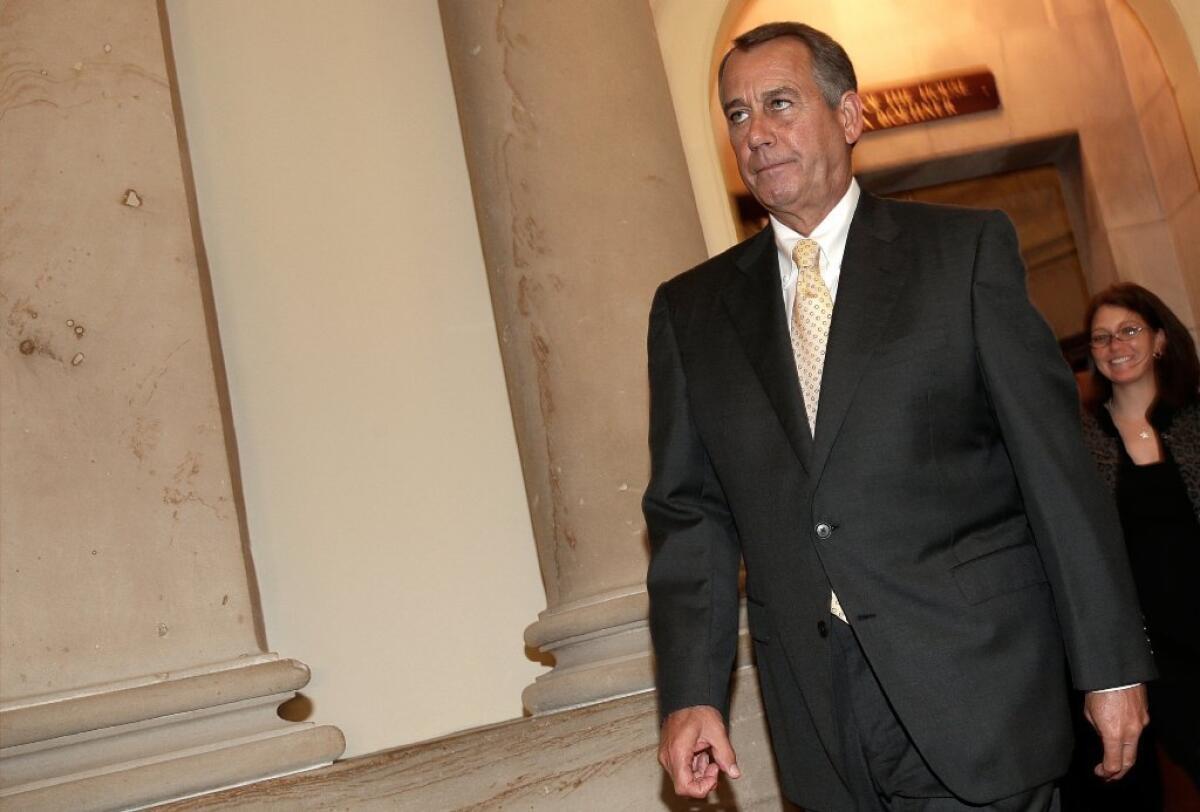Government shutdown: Where do we go from here?

The federal government’s partial shutdown dragged on Thursday, with House Republicans continuing to demand changes in the 2010 healthcare law that Democrats won’t accept. Meanwhile, President Obama and congressional Democrats have upped the ante in the shutdown talks: Not only do they want a “clean” bill that funds federal agencies without undermining Obamacare, but they want an increase in the debt limit with no strings attached.
They’re right on principle: It would set a disastrous precedent if lawmakers in one chamber could bend the rest of Congress and the White House to their will by taking the government’s annual funding or credit rating hostage. Yet it’s hard to see how the current dispute will be resolved unless Democrats help the House GOP leadership find a way out of the corner Republicans have painted themselves into.
Republicans picked the fight over Obamacare mainly because a cohort of tea party-affiliated members had promised their constituents they’d do whatever it took to stop the law. Not only was the goal unrealistic, but the House GOP didn’t have a fallback plan in the predictable event that Democrats stood firm behind the president’s signature legislative achievement.
As bad as the shutdown is for the economy — disrupting government contractors, interrupting small-business loans, threatening the paychecks of more than 2 million federal workers, rattling the stock market — a failure to raise the debt limit in time would be far worse. Recognizing the stakes involved, House Speaker John A. Boehner (R-Ohio) reportedly told the House GOP caucus Thursday that he won’t allow that to happen even if he has to rely on Democratic votes to do so. On the other hand, Boehner also has insisted that Democrats will have to give more ground on the deficit as part of any debt-ceiling bill.
Senate Majority Leader Harry Reid (D-Nev.) and Obama have already made one real concession: accepting the House’s lower cap on total spending in the stopgap bill. They insist they won’t negotiate over the healthcare law or the debt ceiling, and rightly so. What they’re really saying, though, is that the bargaining over entitlements, taxes and other budget issues needs to be decoupled from the shutdown and the debt limit. The trick is to find a way to do that without inviting a new round of brinkmanship a few months down the road.
Ultimately, the cycle of fiscal crises won’t be broken until the two sides agree to the broad budget deal that leaders have been seeking in vain for two years. The glimmer of good news is that the sequester — the annual across-the-board cuts enacted in 2011 — is giving both sides a more powerful incentive to reach such a grand bargain, as is the widespread interest in overhauling the tax code. Now it’s just a matter of getting them to the table without forcing the government to stay closed or flirting with default.
More to Read
A cure for the common opinion
Get thought-provoking perspectives with our weekly newsletter.
You may occasionally receive promotional content from the Los Angeles Times.










